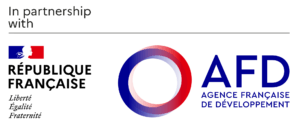ALiSEA is a regional platform that emerged during the ACTAE project Towards an agroecological transition in South East Asia (2015-2019 founded by AFD and coordinated by CIRAD).
Currently, the ALiSEA Network benefits from and is part of a wider program, Agroecology and Safe Food System Transitions (ASSET) project (2020-2025), funded by the French Agency for Development (AFD), the European Union (EU), and the French Facility for Global Environment (FFEM), coordinated by GRET in close collaboration with CIRAD.






